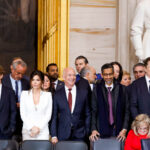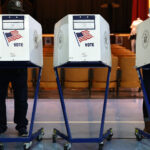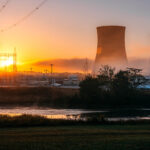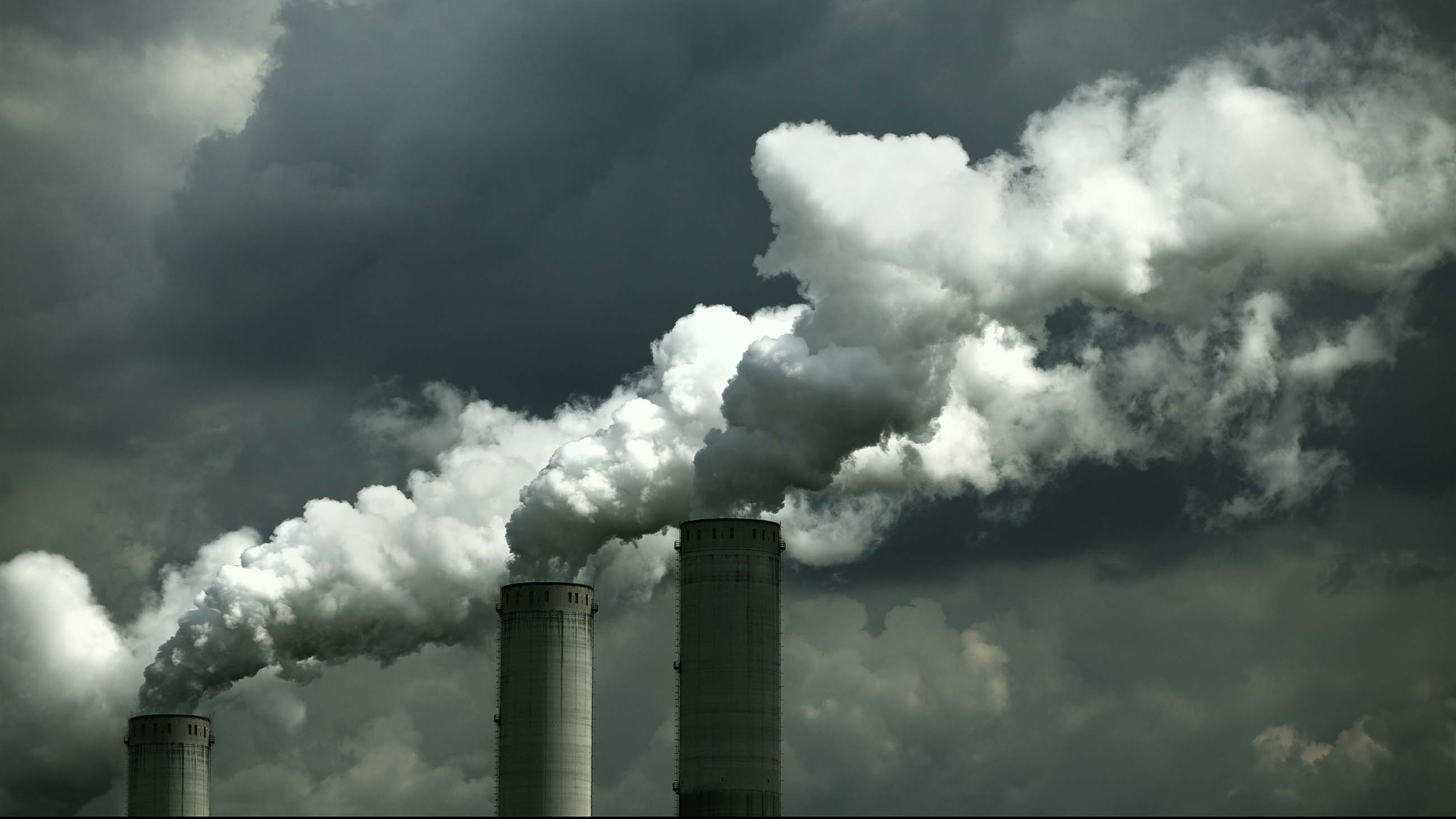Global Warming: Why Can’t We Get Along?

Of the many issues that divide Americans at the dawn of the Trump administration — immigration, abortion, gun ownership — one of the most intensely partisan is global warming.
It’s a gulf that has been growing since the 1990s. Until then, Republicans and Democrats were largely aligned on a variety of environmental issues; Ronald Reagan supported the Montreal Protocol to protect the ozone layer, and George H.W. Bush supported the United Nations’ Intergovernmental Panel on Climate Change.
Today, according to the Pew Research Center, 68 percent of Democrats view climate change as a very serious problem; only 20 percent of Republicans agree. Isolated in ideologically uniform “silos,” we seem to inhabit different realities, with the term “climate change” representing powerful narratives about life, religion, government, and the future.
Is there any way to bridge the divide? There are novel ways to talk about climate change with those who hold opposing views. (For starters, avoid the term itself: One study suggests it’s a nonstarter, serving to cement our previously held beliefs.) But perhaps the best strategy is to seek empathy with the underlying values and perspectives that animate different beliefs among Americans.
Following are 10 examples of the ideological worldviews and personal convictions that inform differing opinions on climate change. They’re drawn from academic studies, polling, and punditry on both sides of the political divide. By viewing climate change through the eyes and experiences of others, people on both sides of the issue may find ways to talk to — rather than simply past — one another.
 The End Is Nigh The End Is NighLiberals might not call it that but they have other words, for example “ecocide.” The first known use of the term came in 1969, according to Merriam Webster, which defines it as “the destruction of large areas of the natural environment as a consequence of human activity.” Today it is often used to describe the potential consequence of unchecked global warming. “Miraculous nature is being murdered,” wrote Glen Barry in 2016 about the “ecocidal tyranny” of China, America, Europe and India. “Everywhere we look inequitable over-consumption is devastating the natural ecosystems that sustain a living Earth. Together we yield to ecological truth — personally embracing a global ecology ethic, and demanding others do so as well — or we all needlessly die at each others’ throats as the global ecological system collapses and being ends.” Rachel Carson helped frame the modern world’s environmental problems in apocalyptic terms in her landmark 1962 book “Silent Spring“: “The road we have long been traveling is deceptively easy, a smooth superhighway on which we progress with great speed, but at its end lies disaster. The other fork of the road — the one ‘less traveled by’ — offers our last, our only chance to reach a destination that assures the preservation of the earth.” Some neuroscientists say apocalyptic thinking is an innate and ancient bias in most mammals. Could fear of climate change be playing the same psychological role for liberals as the second coming of Christ does for conservative evangelicals? |
 It’s Not the Apocalypse It’s Not the ApocalypseBetween Republicans and Democrats, there is what political scientist Ryan Claassen calls the “God Gap”: Evangelical Protestants are largely Republican, secular Americans lean Democratic. Furthermore, 76 percent of Republicans identify as “end-times” believers, with four out of 10 Americans reportedly believing that Jesus Christ will return to earth by 2050, coincidentally the target year for the emissions reductions in the Paris Climate Accords. Not surprisingly, a belief in the Second Coming reduces the feeling that the government should take action on climate change. “Sometimes I wish alarmists would just find God so they would embrace a more plausible apocalypse than global warming,” wrote David Harsanyi, an editor at the conservative online magazine The Federalist. |
 Scientists Are Our Friends Scientists Are Our FriendsConservatives’ suspicion of scientists is mutual; a mere 6 percent of scientists identify as Republican, 55 percent as Democratic. In a study of the public trust in science from 1974 to 2010, one researcher found that conservatives began that period with the highest level of trust in science and ended it with the lowest, while liberals’ trust held stable. Today Democrats overwhelmingly believe there is solid scientific evidence that global warming is occurring and choose to put their faith in science, even if the analysis of climate data and modeling is beyond the grasp of most laymen. |
 Scientists Are a Cultish Cabal Scientists Are a Cultish CabalThe perception of scientists as a group who put their own ambitions and bias above the data was hardened when Climategate, a perceived scandal involving hundreds of emails among climate scientists, broke in 2009. In an interview with The New York Times, Donald Trump cited the controversy as one of the reasons for his skepticism about climate change, even though the “scandal” was wholly debunked. Yet the idea persists among climate change denialists and bloggers that “climate alarmism is a cult,” with its own “priest class: taxpayer-funded impostor ‘climate scientists.’” Some right-wing commentators cite President Dwight D. Eisenhower’s warning, in his farewell address in January 1961, that Americans should be alert to the “danger that public policy could itself become the captive of a scientific technological elite.” |
 It’s Time for Radical Change It’s Time for Radical ChangeLiberal thinkers often frame the urgency of climate change as an opportunity to usher in correctives to an already flawed political and economic system. As Naomi Klein has said: “There are no non-radical options left before us. Change or be changed, right? And what we mean by that is that climate change, if we don’t change course, if we don’t change our political and economic system, is going to change everything about our physical world. And that is what climate scientists are telling us when they say business as usual leads to three to four degrees Celsius of warming. That’s the road we are on.” |
 Liberals Are Always Crying Wolf Liberals Are Always Crying Wolf The feeling that climate change data is really environmental propaganda to advance a political agenda goes back a couple decades. There is widespread doubt among conservatives, for instance, about the science behind the Montreal Protocol to protect the ozone layer. That same skepticism is brought to bear on the scary forecasts of climate scientists. “In 2005 the U.N. Environment Program estimated that global warming would create 50 million ‘climate refugees’ by 2010,” the Heritage Foundation argued in 2016. “In 2009 Al Gore predicted that the Arctic polar ice cap could be ice-free within seven years. The amount of warming predicted by climate models used by the U.N.’s Intergovernmental Panel on Climate Change hasn’t occurred. If these models can’t predict climate impacts 10 or 15 years in the future, why should we undertake costly, anti-development policies to address predictions about what may happen 100 years from now?” Nigel Farage, the British politician who helped usher in Brexit, has said that the Arctic sea ice cap is growing back and that reports of its disappearance are a conspiracy between environmental activists and E.U. federalists. |
 The Conspiracy Is Corporate The Conspiracy Is CorporateIn a 2012 study in Nature Climate Change, academic researchers reported that people on the left “tend to be morally suspicious of commerce and industry, to which they attribute social inequity. They therefore find it congenial to believe those forms of behavior are dangerous and worthy of restriction.” This suspicion was exacerbated by reports that ExxonMobil knew about climate change as early as 1981 and has spent millions to protect its interests by promoting climate denialism. As far back as 1968, the Stanford Research Institute reported to the American Petroleum Institute that carbon dioxide could lead to significant temperature changes in the atmosphere. |
 This Is a Lefty Power Grab This Is a Lefty Power GrabWhen many conservatives hear “climate change,” they think Big Government — a Trojan horse for control over people’s liberty, through things like carbon taxes, cap-and-trade systems, energy rationing. Many believe the Obama administration used climate change to promote liberal internationalism and subordinate the American Constitution. As Rick Santorum, the former Pennsylvania senator and presidential primary candidate, put it: “To me this is an opportunity for the left. … They said, ‘Oh, let’s take advantage of that and say that we need the government to come in and regulate your life some more because it’s getting warmer.’” |
 Heroes Can Save the Planet Heroes Can Save the PlanetRaymond Pierrehumbert, a climate scientist at Oxford University, describes stopping climate change in time to prevent disaster as “humanity’s final exam.” This sense of drama often imbues climate change reports in the media. Leonardo DiCaprio, a climate change activist, has said that China “can be the hero of the environmental movement, they can be the hero of the climate change movement.” The New York Times has called California’s governor, Jerry Brown, a “climate change hero.” Another American who often gets that label is James Hansen, the NASA scientist credited with bringing climate change to the attention of the U.S. Senate and hence the public in 1988. |
 It’s a Conspiracy of Liberal Elites It’s a Conspiracy of Liberal ElitesMany Americans associate global warming with former Vice President Al Gore, whom some despise as the ultimate elitist, and view his warnings as a form of liberal brainwashing — as one voter told The Guardian, “this whole big brainwashing push to save the world from the horrible climate change.” Cynicism about the motives of environmentalists is high; the libertarian Ronald Bailey has described Rachel Carson as pushing an agenda that nature is “a source of moral good,” and that “humanity is arrogant, heedless, and often the source of moral evil.” |
M.R. O’Connor, a 2016-17 Knight Science Journalism fellow at MIT, writes about the politics and ethics of science, technology, and conservation. Her first book, “Resurrection Science: Conservation, De-Extinction and the Precarious Future of Wild Things,” was named one of Library Journal and Amazon’s Best Books of 2015.











Comments are automatically closed one year after article publication. Archived comments are below.
I think the article is good, but I’m not sure that “bridging the divide” between these views is necessary or desirable. We don’t bridge the divide on evolution or the earth-centered system. One side is right and the other side is wrong. When the (legendary) Bishop refused to look through Galileo’s telescope, it wasn’t necessary to try to bridge the divide. He was confronting an evidence-based exercise from a faith-based approach. The divide seems, after all these years, that many people simply deny science as an intelligent means of finding truth. Faith is so much easier. You can be done in two minutes, and get back to making money. But all that said, O’Connor’s effort is kind. Let’s all learn to talk to each other.
I find it impossible to unify behind a party that leaves the majority with no representation. Both the Democrats and the GOPollutocrats carry water for the failed socially enabled capitalistic paradigm, that privatizes profits and socialized loses. Capitalism unencumbered by the requirements of functioning planetary life support systems = mutually assured destruction. I will not go there.
“We don’t have a right to ask whether we’re going to succeed or not – the only question we have a right to ask is: What’s the right thing to do? What does this Earth require of us if we want to continue to live on it?” Wendell Berry
Surely using >50% of the public’s tax dollars subsidizing the profits of those that pollute or exploit the commons is not a justifiable paradigm.
Dod not use “G….W….” once. Does that help
Agree with Richard Grant. M.R., you’re going to have to do better than this. Not only for your writing career, but for your own future. Do you ponder that at all? There is no reason that science cannot dictate public policy. Are you trying to say that ideology trumps science? You might as well write about fashion differences between political parties. I would think common ground is the survival of our children and species. No?
Did you review some of the basics of climate science? Try Spencer Weart’s “The Discovery of Global Warming” – because defining our divided political ideology is a lame exercise. The physical science of global warming – or any other physical event will be unfolding according to physical laws. And giving platform to groups demanding we repeal the Laws of Thermodynamics means nothing.
The house is on fire. Very upsetting, no one wants it, some turn their backs as a common reaction to a traumatic event.. shouting “no!”… But this fire we cannot seem to put out. Some industries are adding fuel. The combustion of carbon fuel is well studied. It looks as if the house will be burning to the ground. Some are sounding the alarm, some are whining that they don’t want to hear any alarming messages. You seem to be talking about bystanders who have turned their backs and averted their eyes. The common ground is to save the house.
Please suspect that global warming is not about pro/con expansionist economics – Climate science does not debate economic policy, it does tell us of carbon combustion risk. Sell all the clean energy you want – using any economic system – and charge the price you can get – but don’t condemn the future of all to suffer from pollution. I though stopping pollution was a common ground..
You fail to notice that climate change deniers are nurtured and fed as pro-carbon boosters. The carbon fuel industry must put tremendous resources into anti-science public relations,,,(See the Frank Luntz memo) and now continue to feed denial — extending the blinders of risk much deeper. ( seek out works by Prof Naomi Oreskes – YouTube and books) Years ago the insurance industry, the World Bank, and major militaries made clear that they understand inevitable, progressive climate destabilization. Corporations and governments are planning for these risks. Who is it that insists we continue to feed our stupidity?
The science is warning about a proven and modeled emergency situation happening now and increasing in the future. How can you possibly equate these as equally rational arguments defined by political parties? How is it that you perpetuate this mythology? How about flat-Earthers vs globals? or the heliocentrics versus the Earth-centric Ptolomaniacs? If you want to do a science essay of interest, inquire why climate change deniers refuse the geology of plate tectonics.
I try not to waste time arguing with anti-scientists, but as a science writer, you can do better. I will blame this one on a really bad editor there.
Asymmetry makes people uncomfortable, I guess. But the fact is, the science of climate change cannot be reduced to a question “ideological worldviews and personal convictions,” and the debate is not a matter of “differing opinions.” Would the author of this piece apply the same kind of analysis to, say, evolution, or the Earth’s age, or “differing opinions” about whether the Apollo moon landings really happened?
I find it almost unbelievable that Undark would publish an article on this crucial subject whose sole piece of practical advice, whispered in parentheses, is as follows: “(For starters, avoid the term itself: One study suggests it’s a nonstarter, serving to cement our previously held beliefs.)”
Really, what’s next? Seek an empathetic common ground with your bigoted neighbor by politely avoiding the term “race”? There are times when you have to stand your ground. “Truth, Beauty, Science” is what I read at the top of this page, and I believe those things deserve an uncompromising defense.